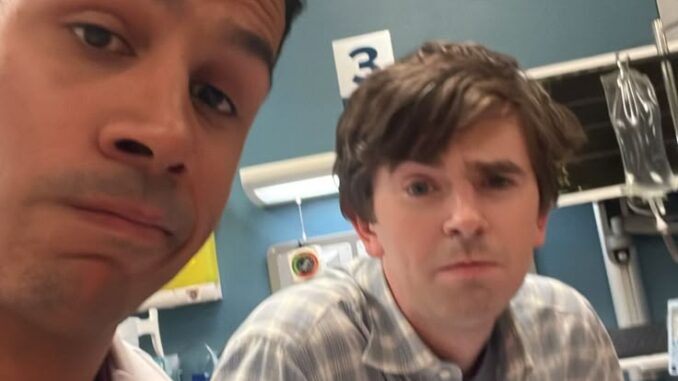
The Good Doctor first aired in 2017, no one could have predicted that a story about a young surgeon with autism and savant syndrome would become a global phenomenon. Fast forward several years, and the series has not only won the hearts of millions but also sparked important conversations about inclusivity, neurodiversity, and the power of perseverance.
At the center of this remarkable journey is Dr. Shaun Murphy, portrayed masterfully by Freddie Highmore — a name now synonymous with emotional depth and quiet strength. But The Good Doctor is more than just a medical drama. It’s a mirror reflecting the struggles and triumphs of those who often feel unseen.
A Character That Redefined Representation
Before The Good Doctor, very few mainstream television shows had portrayed autistic characters with such nuance and respect. Dr. Shaun Murphy is not reduced to a stereotype. Instead, he is presented as a fully realized individual — brilliant, awkward, deeply empathetic, and often painfully honest.
The show challenges viewers to see beyond what society labels as “disability” and instead appreciate the unique perspective Shaun brings into the hospital — and into life. He processes emotions differently, he approaches cases with a logic that often stumps even his most experienced colleagues, and yet, his humanity is what ultimately stands out.
This representation was groundbreaking. For many people on the autism spectrum, or parents raising neurodiverse children, Shaun became more than a fictional character — he became a symbol of hope and recognition.
Freddie Highmore’s Quiet Brilliance
Freddie Highmore, already known for Bates Motel and Finding Neverland, brought Shaun Murphy to life with an elegance and sensitivity that stunned both audiences and critics. What’s more, Highmore is not just the lead actor — he also serves as a producer and has written and directed several episodes.

His portrayal of Shaun is layered: Shaun’s voice never rises above a soft register, but within that quiet demeanor lies a storm of emotions. From Shaun’s awkward first date to his gut-wrenching grief over losing patients, Freddie makes every moment feel raw and authentic. It’s no surprise that his performance has earned multiple nominations, including a Golden Globe nod in 2018.
What’s even more remarkable? Freddie Highmore learned to mimic the thought patterns and behavioral cues often associated with people on the spectrum — all without resorting to caricature. He spent time researching autism, consulting experts, and working with writers to ensure that Shaun would be portrayed with dignity.
Why The Good Doctor Resonates So Deeply
Every episode of The Good Doctor walks a delicate balance between heartwarming victories and gut-punching setbacks. Patients are saved, yes — but they also die. Characters fall in love — and sometimes break apart. The hospital isn’t just a backdrop; it’s a crucible where the best and worst of humanity collide.
But what makes The Good Doctor different from other medical dramas is its emotional honesty. Shaun’s bluntness is sometimes painful, but it’s also refreshingly real. In a world where sugar-coating feelings is the norm, Shaun says exactly what he thinks — and that often leads to moments of unexpected beauty.
We cry when he loses a patient, we cheer when he performs a groundbreaking surgery, and we melt when he says “I love you” for the first time. We don’t just watch Shaun Murphy grow — we grow with him.
A Global Phenomenon
The Good Doctor has been broadcast in over 100 countries and adapted from a South Korean drama of the same name. Its success is not limited to the U.S.; from Europe to Latin America to Southeast Asia, the series has touched hearts worldwide.
In fact, its popularity led to real-life changes. Numerous hospitals and autism organizations have cited the show as a powerful educational tool, helping staff and families better understand neurodiversity in professional environments.
It also sparked a cultural shift in how people discuss autism. In online forums, classrooms, and even dinner tables, The Good Doctor has been a conversation starter — and sometimes, a game changer.
Awards, Milestones, and Final Farewell
While The Good Doctor didn’t sweep awards like some other dramas, its impact goes far beyond trophies. The show has received several nominations from the People’s Choice Awards, the Critics’ Choice Television Awards, and has built a loyal fanbase that has followed it for seven heart-pounding seasons.
As the show approaches its final season, fans are both emotional and grateful. Rumors suggest that Shaun will face his most difficult case yet — not just in the operating room, but within himself. What happens to a man who spent years proving his worth to the world, once he finally accepts his own?
One thing is certain: The Good Doctor will be remembered not just as a show, but as a movement. It didn’t just entertain — it healed, educated, and connected people across cultures and continents.
